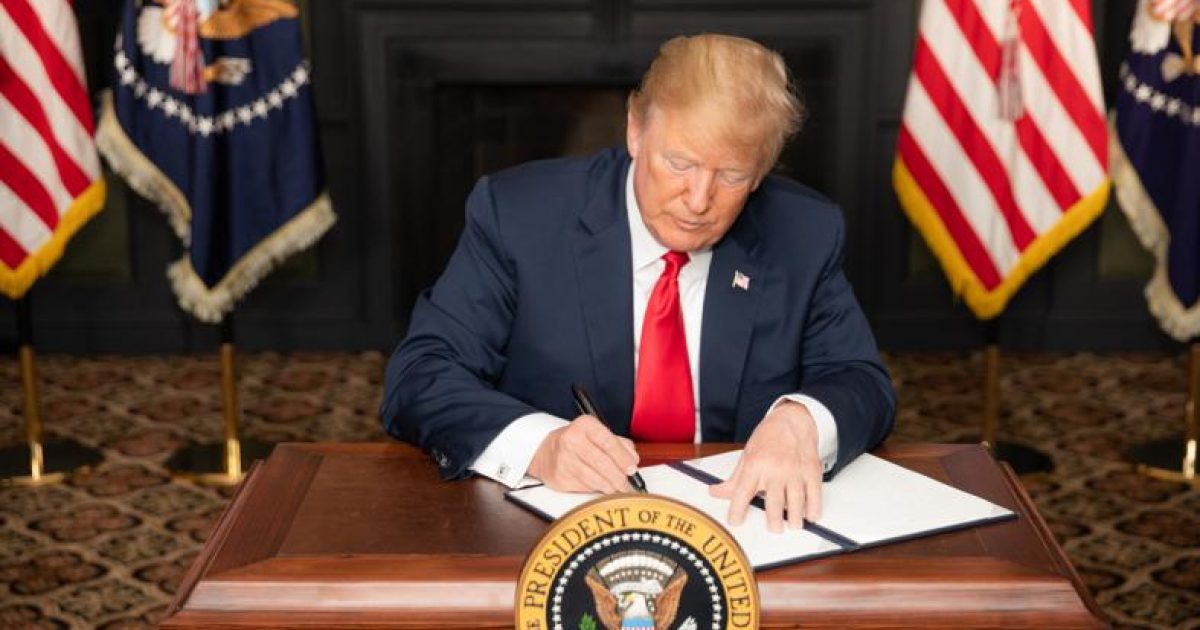
A report issued last week by the White House Council of Economic Advisers shows that President Donald Trump’s policies of deregulation will raise incomes by $3,100 per household within five to 10 years.
“The deregulatory efforts of the Trump administration have also removed mandates from employers, especially smaller businesses, and have removed burdens that would have eliminated many small bank lenders from the marketplace,” said Casey Mulligan, the chief economist for the Council of Economic Advisers, to reporters on Friday.
“These deregulatory actions are raising real incomes by increasing competition, productivity, and wages,” Mulligan added.
The report released by the Council of Economic Advisers on June 28 is titled: “The Economic Effects of Federal Deregulation Since January 2017: An Interim Report.”
The report analyzes a sampling of 20 instances of major deregulation conducted by the Trump administration, which they anticipate will save individuals and businesses roughly $220 billion on an annual basis. They also believe it will boost incomes by 1.3 percent, adjusted to inflation.
The Council of Economic Advisers noted that they targeted the deregulatory efforts to have the maximum impact on the economy, specifically targeting bureaucracy that was holding back job growth.
“Many of the most notable deregulatory efforts in American history, such as the deregulation of airlines and trucking that began during the Carter administration, did not have such large aggregate effects,” wrote the analysts responsible for the Council of Economic Advisers report.
They also noted that reducing the amount of new government regulations, adding them only when absolutely necessary, has allowed economic growth to take off.
“The ongoing introduction of costly regulations had previously been subtracting an additional 0.2 percent per year from real incomes, thereby giving the false impression that the American economy was fundamentally incapable of anything better than slow growth,” the analysts wrote. “Now, new regulations are budgeted and kept to a minimum.”
The price of prescription drugs, which had been spiking for many years, have “even declined in nominal terms over the calendar year for the first time since 1972.”
“We estimate that the results of these actions will save consumers almost 10 percent on retail prescription drugs, which results in an increase of $32 billion per year in the purchasing power of the incomes of Americans (including both consumers and producers),” the analysts wrote.
James Gatsow, who works as the Senior Fellow in Regulatory Policy at The Heritage Foundation, raved about the level of detail within the report to The Daily Signal.
“They really dug in and looked at rules that really had an impact. This showed a big impact,” Gattuso said. “The administration should not lose momentum. They are nowhere near finished. This is not mission accomplished. There are still a lot of regulations out there.”
Mulligan also pointed to Trump’s tax cuts as being particularly influential in the relief being provided to U.S. consumers.
“Consumers are also saving money on internet access: about $40 per subscriber thanks to the deregulatory actions of Congress and President Trump,” Mulligan said. “Considering that most households have multiple internet subscriptions, when applied to both wired and wireless, $40 per subscription becomes $15 billion per year in the aggregate.”
Although Trump has been far from libertarian on the debt and deficit, his policies regarding taxes and regulations have been rather impressive from a libertarian perspective. For the first time in decades, the federal administrative state is being curtailed by the executive branch.



